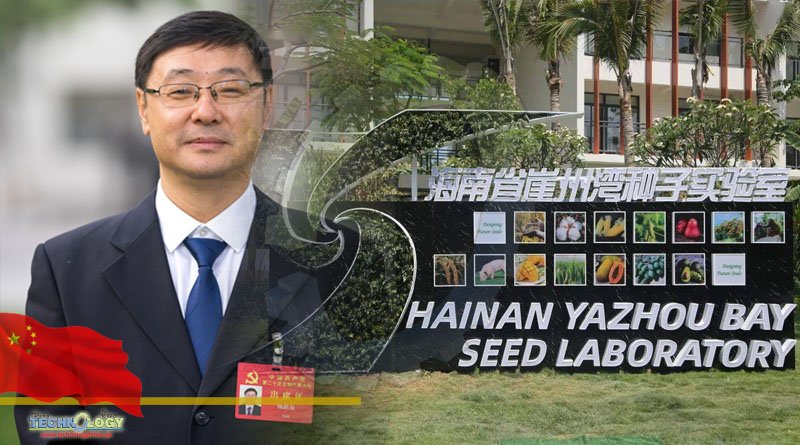“The seed industry is the lifeblood of modern agricultural development and the foundation for ensuring food security,” Yang explained.
Most agricultural scientists work to cultivate new seeds and varieties, while others strive to create favourable conditions for scientific and technological research. Yang Xinquan, a delegate to the Communist Party of China’s 20th National Congress, is committed to accelerating the development of the Yazhou Bay Seed Laboratory in the Yazhou Bay Science and Technology City in Sanya, Hainan province.
Yang, 50, has spent more than 20 years researching agricultural genetics and breeding. In April 2021, he began working as a researcher for the laboratory and took an oath to work hard and promote the revitalization of China’s seed industry.
One month later, the Yazhou Bay Seed Laboratory was established. When Yang arrived at Yazhou Bay Science and Technology City, he was taken aback by the barren landscape in front of him — everything had to be started from scratch, and the construction of the laboratory building had only recently begun. It lacked people, scientific research equipment, offices, and even living quarters.
Yang, like many Chinese scientists and researchers, was not afraid of difficult circumstances. He dedicated himself to the establishment of the laboratory and overcame numerous obstacles.
To facilitate scientific research, Yang paid much attention to attracting talent, compiling a long list of experts and specialists from the domestic seed industry.
Because of his tireless efforts, 23 academicians have begun to form innovative teams in the laboratory, and 76 project teams are involved in resolving specific research challenges. All capable research teams, regardless of their backgrounds, can compete to lead projects.
Yang established a laboratory council and a tightly integrated mechanism involving 23 universities, institutes, enterprises, and government departments, including the Department of Science and Technology of Hainan Province, one year after the laboratory’s establishment.
The laboratory now houses over 7,000 high-tech scientific research instruments, including seed quality classification machines. Seed precision breeding has been enabled by modern innovation platforms. “The laboratory is doing its best to create better scientific study conditions for researchers,” said Yang.
Crop breeding work in northern China is difficult after the autumn harvests. To avoid wasting half a year’s worth of research time, a large number of breeding scientists relocate to Hainan every winter and spring because of its favourable light and temperature conditions.
According to Yang, tens of thousands of scientists and technicians from 29 provincial-level regions have come to Hainan to conduct breeding work, and over 20,000 new varieties of major crops have been multiplied and bred on the tropical island, accounting for more than 70% of new varieties bred in the country.
He believes that the Yazhou Bay Seed Laboratory not only provides a great scientific research platform for agricultural scientists from all over the country, but it has also brought together various seed study organisations to conduct joint research.
When President Xi Jinping visited the laboratory in April, he stated that if the Chinese people want to hold their rice bowl tightly in their hands, they must develop their own seed industry.
The Communist Party of China’s 20th National Congress report mentioned “food security” twice. Yang, as a delegate, advocated for increased efforts to focus on achieving self-reliance in seed science and technology, as well as ensuring that seed sources are under domestic control.
“The seed industry is the lifeblood of modern agricultural development and the foundation for ensuring food security,” Yang explained.
“We will work hard to make the Yazhou Bay Seed Laboratory a centre of innovation in the seed industry, and we hope that it will provide Chinese solutions to the world’s food security problems.”
Currently, the laboratory is bolstering the development of multidisciplinary platforms, hastening the introduction of talent, attempting to take on national tasks related to the seed industry, and making every effort to improve the efficiency and quality of scientific research.
Yazhou Bay Seed Laboratory is currently breeding 15 new varieties of melons and vegetables, as well as investigating the introduction of high-temperature-resistant varieties for the summer.
